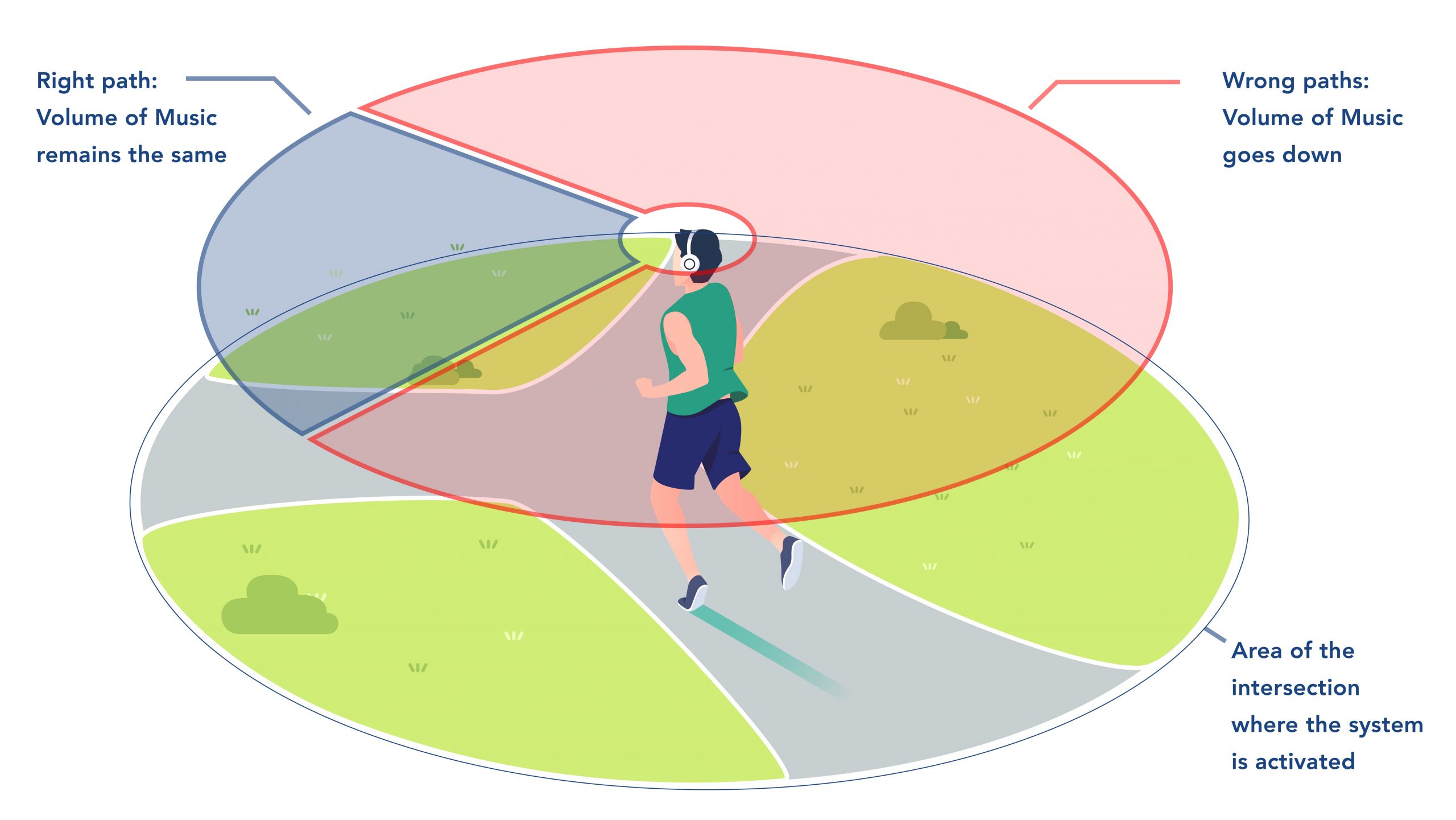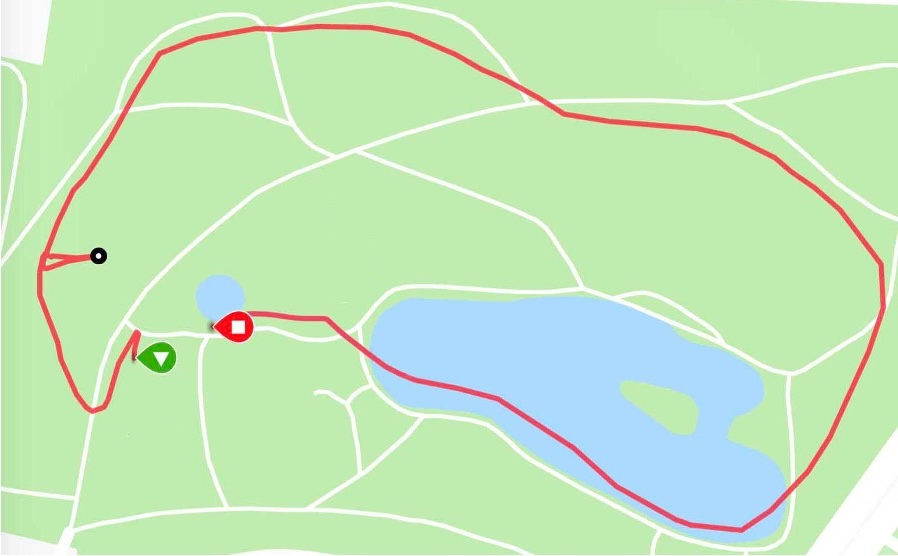Follow the Music. Navigation Support for Runners
This project investigated innovative solutions to guide runners along unfamiliar paths with minimal intrusion. We explored the potential of using runners’ head movements to query and receive navigation feedback. The runner is invited to follow the music.
PROBLEM STATEMENT.
Runners often rely on navigation support to exercise in unknown areas. However, they face disruptions and inconvenience when using traditional navigation tools, such as smartphones or wearable devices with visual or voice commands. These conventional methods often require runners to shift their focus from their activity, potentially affecting their performance and safety. At the same time, voice commands can be perceived as disruptive. Our project explored more seamless and natural ways for runners to receive navigation cues without breaking stride or concentration.
EXPLORATORY STUDY.
The initial research included semi-structured interviews conducted by one of the team members with 7 local runners who run several times a week. The findings revealed a general preference among runners for minimal technical interference during their runs. More than half of the interviewees expressed an interest in discovering new routes but found existing navigation solutions to be either impractical or too intrusive. Despite their interest in exploring, the lack of sufficiently non-intrusive navigation aids often deterred them from running in unfamiliar areas, as they feared getting lost without an obvious path to follow.
How could we provide minimally intrusive navigation guidance to runners?
CONCEPT.
Our concept introduces a unique approach to runner navigation by employing head scanning as the primary method for interaction. The system uses the natural movement of looking around to trigger navigation feedback, delivered through variations in music volume. For instance, if within an intersection, the person rotates the head towards the right path, the music remains unchanged. Otherwise, its volume is reduced. The runner is invited to follow the music. As an alternative for people not listening to music, the system provides the positive and negative cues through haptic feedback. Our system allows runners to stay informed about possible routes and directions without the need for visual cues or stopping to check a device. The concept aims to make the navigation process as intuitive and minimally disruptive as possible.

USER EVALUATION.
We conducted an evaluation with 24 participants, comparing our system (providing music or haptic feedback) against traditional voice-guided navigation. For this, we developed an Arduino prototype that tracked head orientation and triggered feedback based on a set of predefined routes in a park.
Our evaluation measured the cognitive and physical demand placed on users, the accuracy of navigation, and overall user satisfaction. Findings revealed that while our system did not significantly outperform conventional navigation methods in terms of demand and error rates, it was preferred by most participants. They found it engaging and less disturbing. Some participants still expressed concerns, stating that the system was sometimes too sensitive, generating false alarms. However, most of them also stated that the second time they tried it, it was easier and more instinctive to use. We identified opportunities for future improvement, such as incorporating stereo feedback to guide scanning directions or employing machine learning to discern the intention behind head movements to make the system even more intuitive and less intrusive.
LEARN MORE.
System and method for communicating possible travel paths through head scanning and sound modulation.
Gallo, Shreepriya, Willamowski. US20210102819A1. Patent →
RunAhead: Exploring Head Scanning based Navigation for Runners
Gallo, Shreepriya, Willamowski. 2020. Conference on Human Factors in Computing Systems (CHI). Paper & Video →
Supporting Natural Navigation for Running in Unknown Places
Shreepriya, Willamowski, Gallo. 2019. Designing Interactive Systems Conference (DIS). Short paper →
Situationally Induced Impairment in Navigation Support for Runners
Shreepriya, Gallo, Viswanathan, Willamowski. 2019. Workshop: Addressing the Challenges of Situationally-Induced Impairments and Disabilities in Mobile Interaction (CHI). Short paper →







